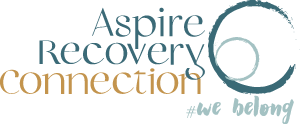Employee Assistance Programs (EAPs) have a rich history rooted in compassion, care, and a deep commitment to employee well-being. These programs have evolved significantly over the years, moving from a narrow focus on single issues to embracing a broad spectrum of personal and professional challenges that people face. For those of us in the lived experience community, EAPs represent a meaningful shift in workplace culture, where support for mental health and holistic well-being is increasingly valued and prioritised.
The Origins of EAPs: Support for Alcohol Dependency
The origins of EAPs can be traced back to the 1930s in the United States, where they began with a specific focus: supporting employees struggling with alcoholism. This was a time when businesses started noticing a pattern—employees who were struggling with alcohol dependency were often distracted and stressed, which impacted their productivity and, in turn, the company’s well-being. But instead of focusing only on performance, some forward-thinking businesses realised that what was really needed was a form of support and understanding for those employees.
Recognising that people needed access to confidential resources to address these struggles, employers began incorporating support for alcohol dependency into employee benefits. This wasn’t just about getting employees back on their feet at work; it was a step towards creating a more caring and understanding workplace culture that viewed employees as human beings with complex lives, worthy of support.
Broadening the Scope: EAPs Embrace Mental Health, Burnout, and More
As awareness and understanding grew, so did the scope of EAPs. Over time, these programs expanded to address issues beyond alcoholism, covering challenges like mental health, stress, burnout, and addiction. This was a pivotal change, driven by a growing understanding that supporting employees means addressing all aspects of well-being—emotional, psychological, and physical. People dealing with mental health struggles, family issues, or chronic stress could finally turn to their workplace for help, knowing they would find resources to support their journey.
This change also aligns closely with the core belief in lived experience perspectives: that challenges are not isolated to the individual alone but are often influenced by the environment and systems around us. By offering support through EAPs, workplaces recognised that employees were more than just their roles—they were people with unique needs and experiences.
The Benefits of EAPs Today
Today, EAPs continue to play a crucial role in supporting employees. From mental health challenges to family issues, these programs offer a confidential space for employees to access professional help, often extending support to their families as well. These services allow people to tackle a range of personal and professional issues, including:
- Mental Health Support: Employees dealing with mental health concerns can access counselling and therapeutic resources.
- Stress and Burnout Management: For those feeling overwhelmed, EAPs provide a lifeline, offering tools and strategies to navigate stress.
- Addiction and Recovery Support: EAPs help individuals address various forms of dependency, supporting a healthier life both in and outside of work.
- Family and Relationship Guidance: Many programs offer resources not only to employees but also to their families, fostering supportive home environments.
The evolution of EAPs reminds us of the importance of human connection and compassion in the workplace. For those of us with lived experience, EAPs symbolize the understanding that we all face challenges, and that with the right support, we can move forward with dignity and resilience.
A More Compassionate Approach to Workplace Wellness
At Aspire Recovery Connection, we view EAPs as a vital resource for not just addressing symptoms but also understanding the stories behind them. It’s about walking alongside people as they navigate the twists and turns of life, offering support, guidance, and hope along the way. EAPs have come a long way from their origins, evolving into holistic programs that reflect the value of each individual’s journey.
As we continue to learn from our shared lived experiences, we see that workplaces can be a place where people thrive—not just as employees but as whole people. And with EAPs, we’re getting closer to that vision every day.
For more information about our EAP services, reach out to us at Aspire Recovery Connection. We’re here to help you find the support you need to thrive in all aspects of life.




Recent Comments